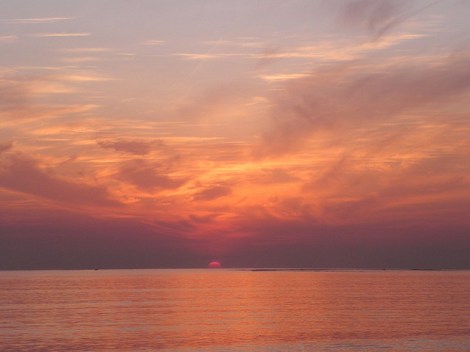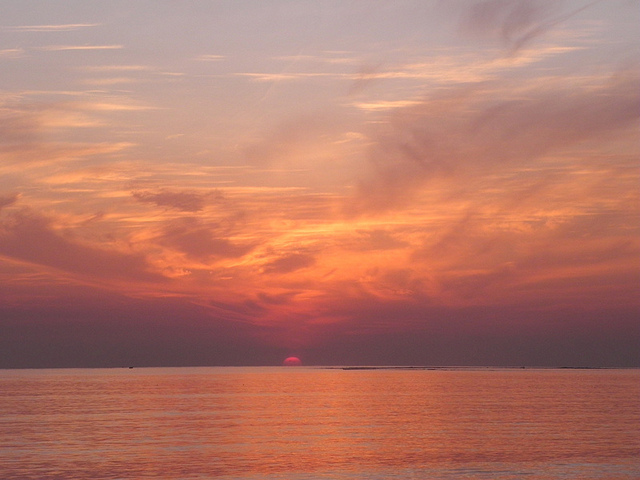One thing that can be said categorically about Hurricane Sandy is that sea-level rise was a key factor in the damage the storm caused. New York Harbor is 15 inches higher than it was in 1880, eight of which are due directly to human-made climate change. A 2007 report suggested that by 2100 the seas could be at least seven inches higher still.
But those estimates may have been conservative. The Institute of Physics revealed today that the seas are rising 60 percent faster than expected.

mshehanManhattan in 200 years.
While temperature rises appear to be consistent with the projections made in the [Intergovernmental Panel on Climate Change’s] fourth assessment report (AR4), satellite measurements show that sea-levels are actually rising at a rate of 3.2 mm a year compared to the best estimate of 2 mm a year in the report. …
Satellites measure sea-level rise by bouncing radar waves back off the sea surface and are much more accurate than tide gauges as they have near-global coverage; tide gauges only sample along the coast. Tide gauges also include variability that has nothing to do with changes in global sea level, but rather with how the water moves around in the oceans, such as under the influence of wind.
The study also shows that it is very unlikely that the increased rate is down to internal variability in our climate system and also shows that non-climatic components of sea-level rise, such as water storage in reservoirs and groundwater extraction, do not have an effect on the comparisons made.
Which means that in 88 years, New York’s harbor will be at least 11 inches higher — assuming that the speed of the rise doesn’t increase still more.
From The Guardian:
The faster sea-level rise means the authorities will have to take even more ambitious measures to protect low-lying population centres — such as New York City, Los Angeles or Jacksonville, Florida — or risk exposing millions more people to a destructive combination of storm surges on top of sea-level rise, scientists said.
Scientists earlier this year found sea-level rise had already doubled the annual risk of historic flooding across a widespread area of the United States. …
“The study indicates that this is going to be as bad or worse than the worst case scenarios of the IPCC so whatever you were planning from Cape Hatteras to Cape Cod in terms of how you were preparing for sea-level rise — if you thought you had enough defences in place, you probably need more,” [study coauthor Grant] Foster said.
The other lesson of Sandy, of course, was that we should be under no impression that we have enough defenses in place.




